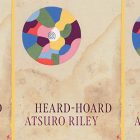Day Mark/Night Signature: Ginger Ko’s Motherlover
Workshopping individual poems is one thing; working on a full chapbook or book manuscript is quite another. For the reader or writer who wants to put away the notion of poems as discrete, and to look for a demonstration of poems as part of a fuller structure or a continuous line, away from the pressures of easy boundaries or the idea of individually-wrapped units, Motherlover is a good place to be.
Ginger Ko is the author of Motherlover from Bloof Books, and her chapbook Inherit is also forthcoming from Bloof. Another chapbook by Ko, Comorbid, is available from Lark Books. She is currently a PhD student at the University of Georgia’s creative writing program and her poems have been published in Jellyfish Magazine, The Wanderer (Harlot), and The Poetry Society of America’s website among many other venues.
In Motherlover, the poems’ often long lines operate on the level of deliberate sensory experiences, stark records of tedium, grime amidst joy, and discomfort, instead of a more commonly found density of sound and structure. The cover design and the book pages make room for the long lines across the page, often containing one full end-stopped sentence each or containing full clauses, ending where they end. And the book’s first half contains individual poems; some with amazing titles such as “Get the fuck out woodland creatures, get the fuck out low hanging fruit” and “Stay Away From My Windows No One Is Welcome”; and its second half is split into poems that are titled either “Day Mark” or “Night Signature”.
Recurring sensations of smallness, concentration, and observation are found in descriptions of the body and of sensations, minute and great, that run through the book like they would in a nervous system: “[Dark] blue blood/Running a tongue over secret small teeth”; “[The afternoon glows] through the icy rims of your ears/And the tips of your milky fingers/Which are delicately freckled like seafood”; “She…chews her tongue knowingly, as if mealy with banana”; “[An] ant field bustles continuously on my left cheek.” Each ache or jolt of pain or feeling is recorded and addressed, like a journal of symptoms, little things that add up. The speaker goes beyond pain into the territory of discomfort and irritation, which sounds like a paradox, but it’s one of the book’s deceptively harder projects.
Like film photographs depicting domesticity in grainy color, we see all of “a rope of saturated snot…Thick cherry mud patted into gifts and then ossified by sun”, “bruise-colored ghosts from a glass dropper”, “[nighttime] always a soft orange”, “[tears] sloppy like raw egg-whites with self-pity”. Colors that are the first that your brain forgets when moving out of an old and unsatisfactory apartment.
Ko sets a contrast between swathes of formal syntax and very concrete, gritty subject matter: “My sinking feet keep kicking up silt clouds…and I do not wash very far downstream”, she shows the reader”; “Why weird the greyscale quality of my life, I ask you,” the speaker addresses a partner. And at other times, the speaker lobs us stomach-clutching images of worldliness: “Lots of thing I’ve done have felt like/Drinking the worst tequila from the tip/Of a dick-shaped shooter made of ice”; “What if I just stopped/What if decomposition sweetened me up a little”; “I don’t like to think of a sea of privates agog around me.” These pass by the plainness of what is obscene but sadly common, stopping by the bus stop of snark, to pair up with the speaker’s camera-eye recollections of man-made pieces of suburbia.
The poems’ length and tonal detail are also punctuated with other poems and passages with contrasting shorter lines:
If it doesn’t hurt is it still right If it isn’t fierce is it still strong,
the speaker asks rhetorically, the thought offering some comfort and impetus to the reader: it is.
Motherlover is available from Bloof Books.
Also read Ko’s latest essay, “This Cave”, on The Offing!



